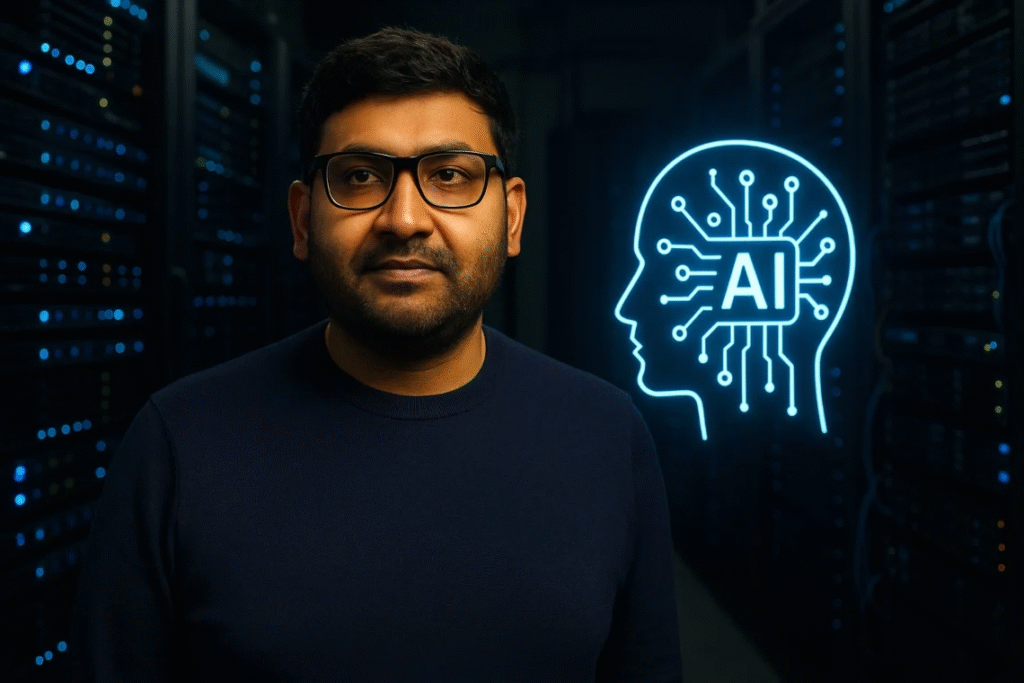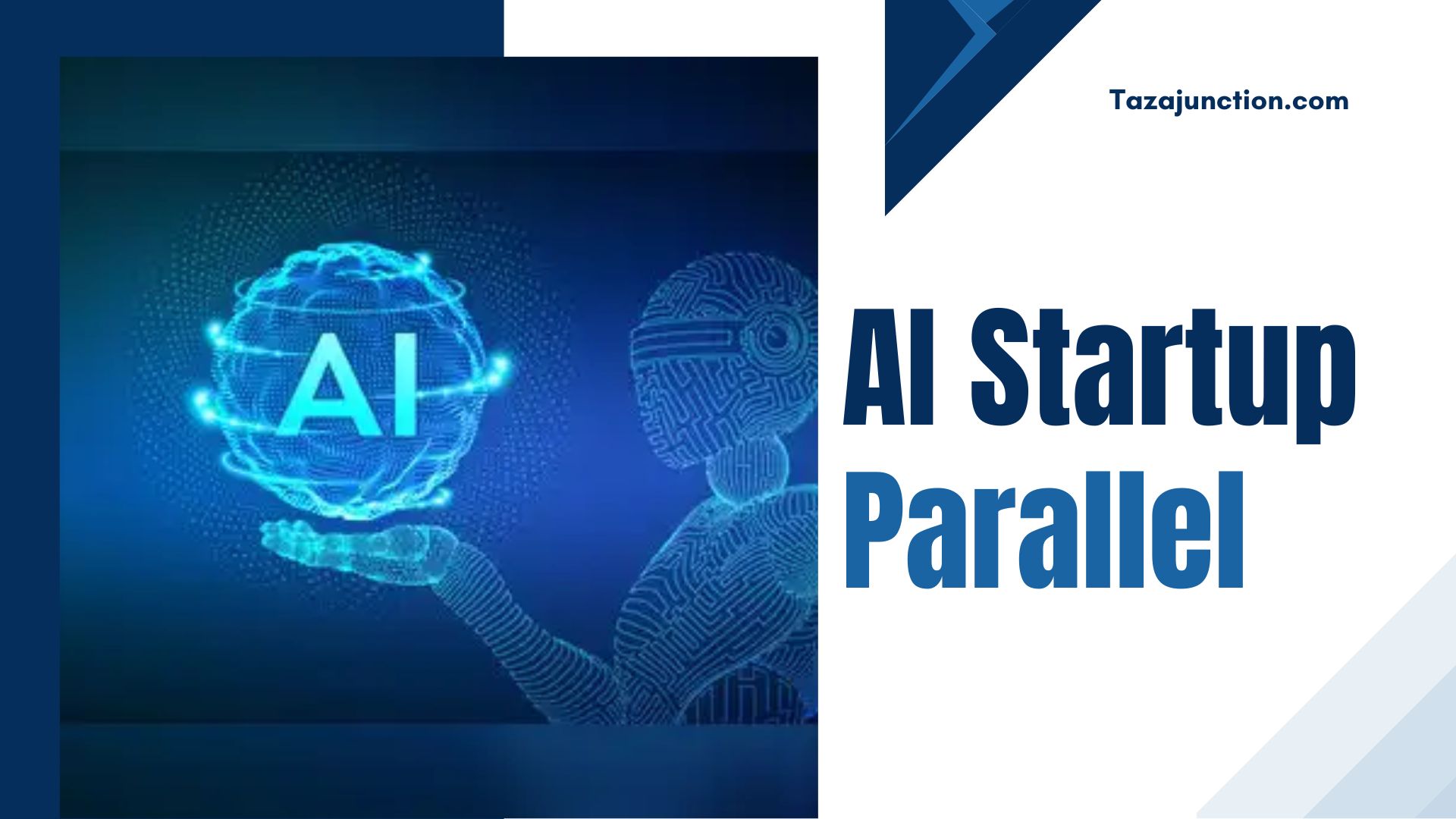In a bold step into the future of artificial intelligence, former Twitter CEO Parag Agrawal has officially launched a new venture titled Parallel, an AI startup with an ambitious mission—to build what he calls a “web for machines.”
The Parag Agrawal AI startup Parallel is not just another entrant in the crowded AI market. It seeks to redefine how machines interact with data and applications on the internet, much like how humans currently do.
This move signals Agrawal’s return to the forefront of technological innovation after his high-profile tenure and departure from Twitter.
With Parallel, he aims to tackle one of the most complex problems in the AI ecosystem: creating seamless interoperability between large language models (LLMs), software systems, and real-world applications.
Let’s dive with TazaJunction.com into what Parallel is all about, what it means for the AI space, and why the Parag Agrawal AI startup Parallel might become one of the most important AI companies to watch in the coming years.
Table of Contents
Who Is Parag Agrawal?
Parag Agrawal rose to prominence as the Chief Technology Officer (CTO) of Twitter before succeeding Jack Dorsey as CEO in 2021. His time at the helm was short-lived, as Elon Musk’s acquisition of Twitter in 2022 resulted in a leadership shake-up that ended Agrawal’s tenure.
However, Agrawal had long been known in the tech world as a talented engineer and visionary with deep expertise in large-scale systems, machine learning, and artificial intelligence.
With the Parag Agrawal AI startup Parallel, he’s now channeling that experience into building infrastructure for the next phase of AI evolution.
What Is Parallel and What Is It Building?

Parallel is designed to address one of AI’s current limitations: while large language models like GPT, Claude, and Gemini are increasingly powerful, they still struggle with performing complex, multi-step tasks across various systems.
They’re excellent at generating text and responding to queries, but less effective when asked to act across different software environments, APIs, or web platforms.
The Parag Agrawal AI startup Parallel wants to change that by building a framework that connects LLMs with the internet in a structured, reliable, and programmatic way.
In simpler terms, it’s creating an ecosystem where machines can navigate and interact with digital content and software like humans use browsers and apps.
Agrawal describes Parallel’s mission as building the “web for machines”—a network where AI agents can seamlessly access and use tools, systems, and platforms across domains.
Solving the Agent Problem
A big challenge in the current AI landscape is the gap between what LLM can “say” and what they can “do.” While a chatbot can suggest actions or answer questions, it often cannot perform tasks autonomously or handle real-time workflows.
The Parag Agrawal AI startup Parallel aims to solve this by enabling AI agents to complete real-world tasks through direct interaction with digital systems.
Imagine an AI that doesn’t just recommend a flight but can search, compare, and book it based on your preferences. Or an agent that can analyze your documents, update your CRM, and schedule meetings across time zones—all automatically.
Parallel is working on APIs and developer tools to make this possible, paving the way for highly functional, autonomous AI systems that go beyond basic prompts and outputs.
A Strong Technical Foundation
What gives the Parag Agrawal AI startup Parallel credibility is its technical leadership. Agrawal himself is a seasoned computer scientist with a PhD from Stanford and a background in distributed systems and machine learning.
He was instrumental in shaping Twitter AI infrastructure, and his experience with large-scale data processing is a major asset in building a new AI operating layer for the web.
While the team at Parallel remains mostly under wraps, early indicators suggest Agrawal has recruited other former Twitter engineers and top talent from the AI community.
This foundation positions the startup to tackle one of the most difficult engineering problems of the decade—making AI agents truly useful in practical, everyday workflows.
Funding and Industry Backing

Though exact figures are yet to be disclosed, the Parag Agrawal AI startup Parallel is reportedly backed by prominent investors in the tech and AI space.
Venture capital firms that have historically supported transformative startups are believed to be involved, signaling strong belief in Parallel’s vision and potential impact.
This funding is critical, as building a new infrastructure layer for AI interaction isn’t just about software—it involves data pipelines, real-time systems, security frameworks, and user-facing APIs. With capital and technical depth, Parallel is in a strong position to lead this next phase of AI evolution.
Why Now?
The timing of the Parag Agrawal AI startup Parallel couldn’t be more strategic. 2024 and 2025 have seen explosive growth in generative AI, with models improving rapidly and AI adoption spreading across industries. However, organizations are now facing a plateau: how to integrate AI more deeply into real-world operations.
Parallel is stepping into this gap, providing the glue between AI reasoning and execution. It’s no longer enough for AI to generate text—it must also act. That’s where Parallel’s platform comes in, offering developers tools to give AI agents actual capabilities in the digital world.
Competitive Landscape
Parallel won’t be alone in this space. Other companies are also exploring agent-based AI, such as OpenAI (with GPT plugins and function calling), Anthropic, and smaller startups building AI assistants.
However, what differentiates the Parag Agrawal AI startup Parallel is its exclusive focus on building a scalable infrastructure for machine-to-machine interaction.
Rather than creating individual AI tools or consumer-facing apps, Parallel is laying the foundation for an entire AI-powered internet layer. This architectural approach may allow it to become the “cloud for AI agents,” much like AWS did for web services.
Potential Use Cases
If successful, the platform being built by the Parag Agrawal AI startup Parallel could unlock new capabilities across multiple sectors:
- Enterprise Automation: Automate back-office processes, document workflows, and data analysis
- E-commerce: Enable AI agents to manage inventory, pricing, and logistics
- Healthcare: AI can interact with patient management systems to schedule, monitor, and document treatments
- Finance: AI agents could analyze real-time data and perform actions like portfolio adjustments or fraud alerts
- Customer Service: Intelligent agents could resolve tickets, perform follow-ups, and communicate across platforms
These are just the early applications. With a powerful infrastructure, the possibilities are vast.
Privacy and Ethics Considerations
As with all powerful AI systems, ethical considerations are critical. The Parag Agrawal AI startup Parallel will need to address concerns around data privacy, agent behavior, and accountability. Giving AI systems the ability to act autonomously in the digital world requires strict guardrails and transparency.
Early signals suggest that Agrawal and his team are well aware of these issues and are building safety protocols and monitoring tools into the platform from the start.
Final Thoughts
The launch of the Parag Agrawal AI startup Parallel marks an exciting new chapter in the evolution of artificial intelligence. By focusing on agent capabilities and building the “web for machines,” Parallel aims to bridge the gap between static AI output and real-world action.
With a founder who understands both the technical and business dimensions of large-scale systems, Parallel is positioned to tackle one of the most transformative challenges of our time. As enterprises, developers, and users seek more intelligent and functional AI systems, Parallel could emerge as a foundational force in shaping how machines interact with the digital world.
The world is watching—and the future of AI might just be written in Parallel.

